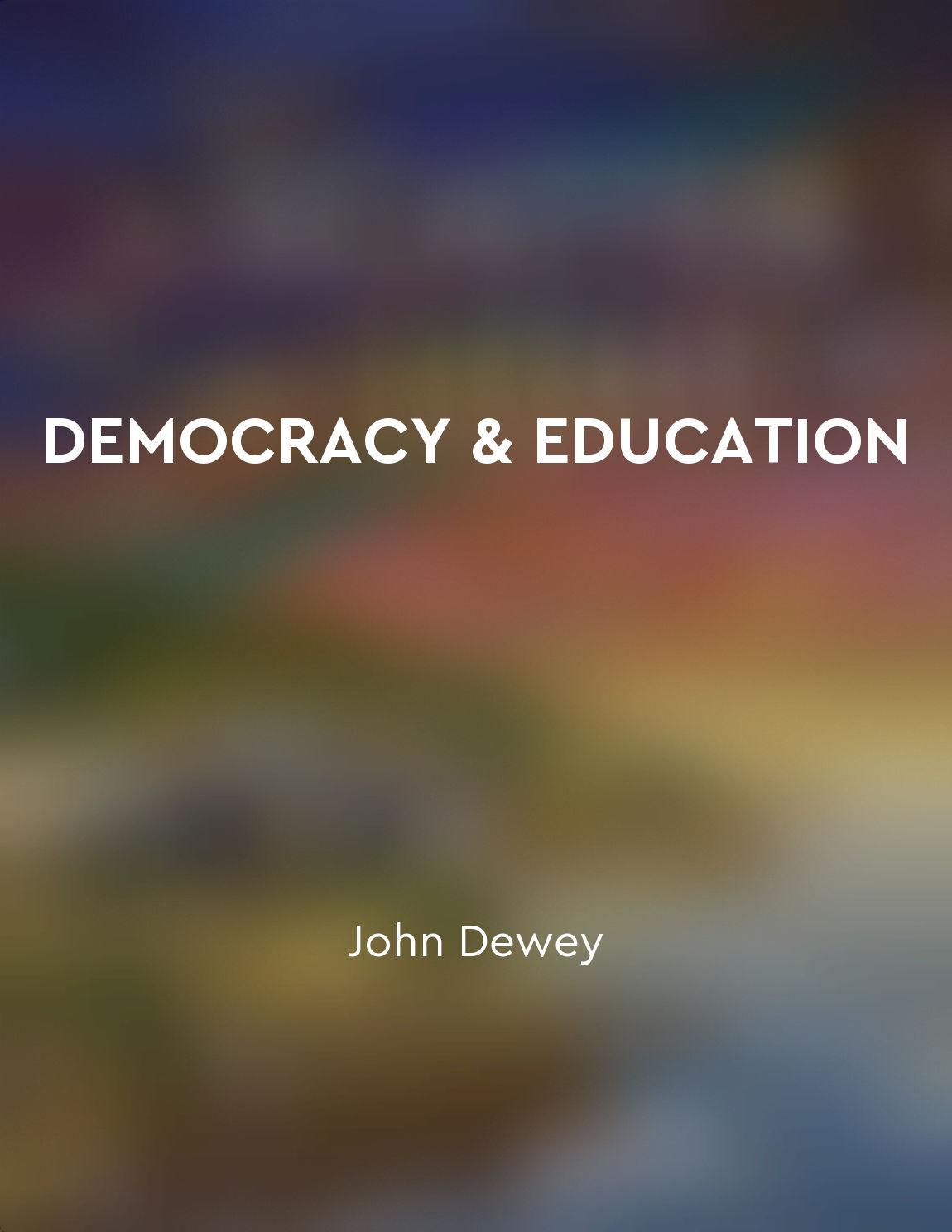Curriculum should reflect realworld problems from "summary" of DEMOCRACY & EDUCATION by John Dewey
The role of education in a democratic society is to prepare individuals for active participation in the social, political, and economic life of their communities. In order to achieve this goal, the curriculum must be designed in such a way that it reflects the real-world problems and challenges that individuals will encounter in their lives. This means that the content of education should not be limited to abstract theories and disconnected facts, but should instead be rooted in the experiences and complexities of the world around us. By focusing on real-world problems, the curriculum can help students develop the critical thinking skills, problem-solving abilities, and practical knowledge that are essential for success in a democratic society. Instead of passively receiving information from teachers, students should be actively engaged in exploring and analyzing the issues that affect their communities. This approach not only makes learning more relevant and meaningful for students, but also helps them see the connections between what they are learning in school and the challenges they will face as citizens. Furthermore, by addressing real-world problems in the curriculum, education can promote social justice and equity. By exposing students to issues such as poverty, racism, environmental degradation, and political corruption, the curriculum can help them develop a deeper understanding of the root causes of these problems and empower them to take action to address them. This can help create a more informed and engaged citizenry, capable of working together to create a more just and equitable society. In addition, by reflecting real-world problems in the curriculum, education can help students develop a sense of agency and responsibility. Instead of feeling overwhelmed or powerless in the face of complex challenges, students can see themselves as active agents of change who have the knowledge and skills to make a difference in the world. This can foster a sense of civic engagement and a commitment to social progress, helping to create a more vibrant and participatory democracy.- The concept that the curriculum should reflect real-world problems is essential for creating a more democratic and inclusive education system. By grounding education in the realities of the world around us, we can prepare students to be active and informed citizens who are capable of addressing the complex challenges of the 21st century. This approach not only enriches the learning experience for students, but also helps to build a more just, equitable, and participatory society.
Similar Posts
Video recordings help analyze teaching methods
Video recordings are a valuable tool for educators to gain insight into their teaching methods. By watching themselves in actio...

Dismantling white supremacy is a collective responsibility
When we talk about dismantling white supremacy, it is important to understand that this is not a task that falls solely on the ...

Education must adapt to societal changes
Education is not a static entity, but one that is in constant flux, shaped and molded by the ever-changing landscape of society...
Humanities provide depth
The humanities offer a unique and invaluable contribution to education. They provide depth that is often missing in other disci...

Curriculum should be relevant to students' lives
The curriculum should not be a mere collection of subjects that students are required to study, disconnected from their lives a...
Empowering marginalized communities is key to advancing educational justice
The central idea that underpins the pursuit of educational justice is the empowerment of marginalized communities. When we spea...

Be a force for good
To be a force for good is to actively engage with the world around us, to stand up for what is right and just, and to make a po...
Language shapes power dynamics in education
The ways in which language is used in educational contexts play a crucial role in shaping power dynamics. Language is not neutr...
Schools can serve as sites of resistance against oppression
Schools are not neutral spaces. They are powerful sites where dominant ideologies, worldviews, and social structures are both p...
Policy decisions have a significant impact on education outcomes
Policy decisions in the realm of education hold immense power and influence over the outcomes and experiences of students, part...

